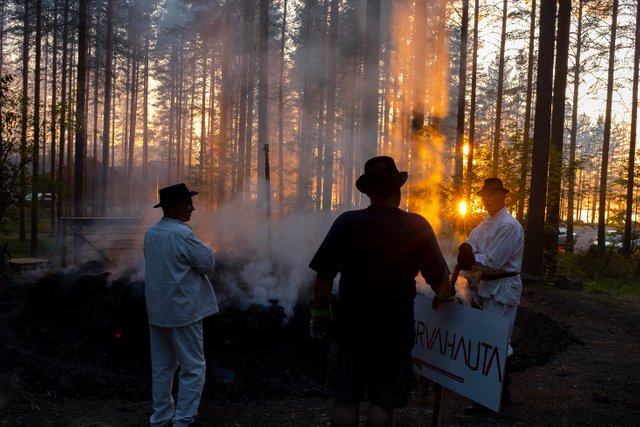
I teased you with a few of these pictures yesterday and while your guesses of me standing on top of a portal to hell were fun, they were incorrect. This magical looking scene of smoke, burning coals and the sunset making everything look afire, is from a traditional pine tar burning pit.
Pine tar is traditionally used for waterproofing rowing boats, wooden ships and shingle roofs, but also for numerous other things from skincare to flavouring. Pine tar was an important commodity in the olden days, but has since become more rare when moderns materials have replaced wood, and these days burning tar pits is mostly done for demonstration purposes, and not so much for the commercial value of it.
Making pine tar obviously requires pine trees, which means the process is located here in the coniferous forests areas; Scandinavia, Russia and I would assume, Canada. The kind of pine needed for the tar burning is hard to come by, because not any pine will do. The pine wood needs to have a high concentration of resin, so much that the wood is red and clearly smells of tar. The best wood for tar making is found in the stump and roots of a fallen tree, because the tree is trying to save itself by pumping all the resin to the roots, but to mimic that, trees are also debarked years in advance to try and get them to produce more resin.
To extract the resin from the wood and turn it into tar, the wood needs to be burned slowly to kind of sweat the resin off the wood, in what is called a tar pit. The pit is like a vessel with a hole in the bottom, being filled with pine wood, and topped with soil, moss and peat, then being lit from the sides and kept burning in a slow pace, usually for a whole week. The pit needs to be monitored around the clock, and the pit masters keep putting more soil on top, or removing it as needed, depending on how the wood burns.
Last weekend I got to witness a tar pit burning in a small village. They used to do this every year, but now I think it had been three years from the last time they lit the tar pit. This was only the first day of burning the wood, so no tar was coming out yet, it will take a few days before the tar starts flowing from the tube in the bottom of the pit.
Me and my parents arrived at the perfect time before sunset, and the whole scene was just magical with the setting sun filtering through the trees and the fragrant smoke filling the calm evening air.
Shot with the Fujifilm x100f.
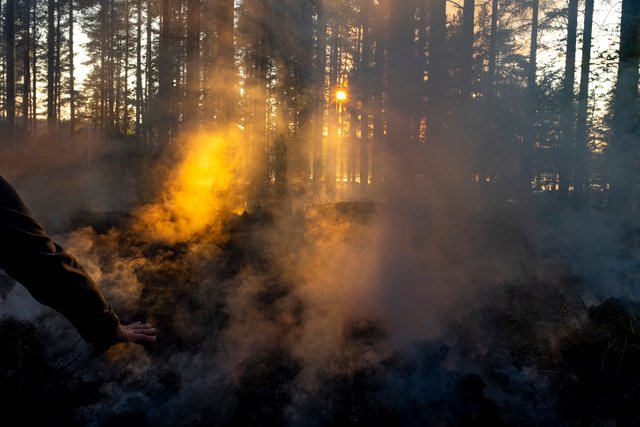
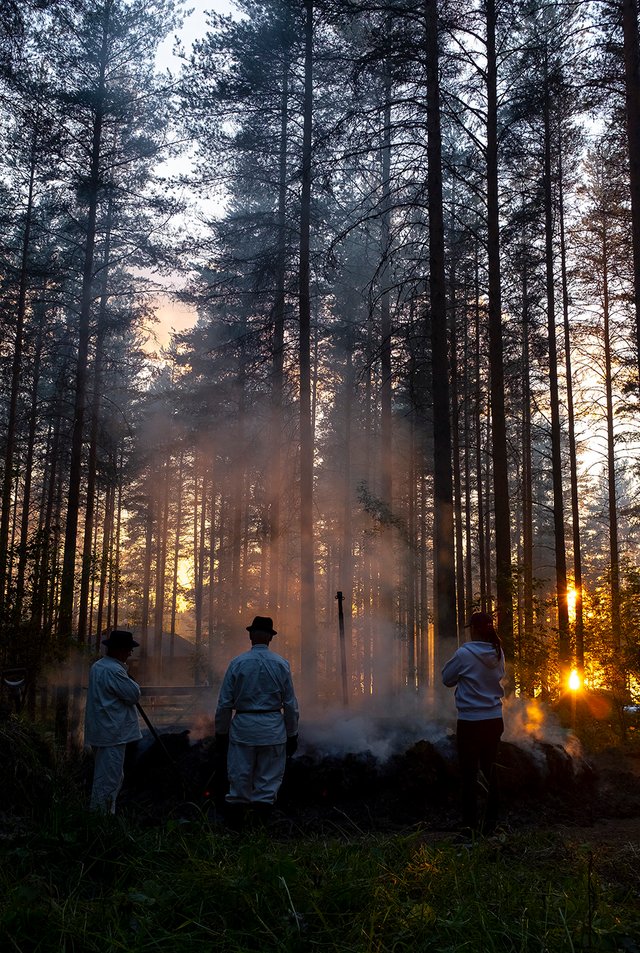
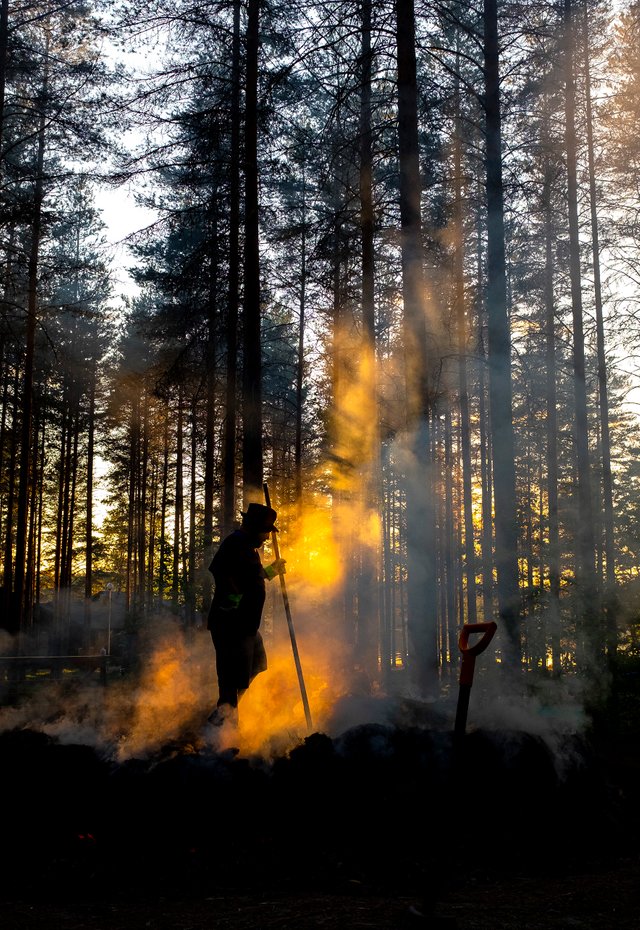
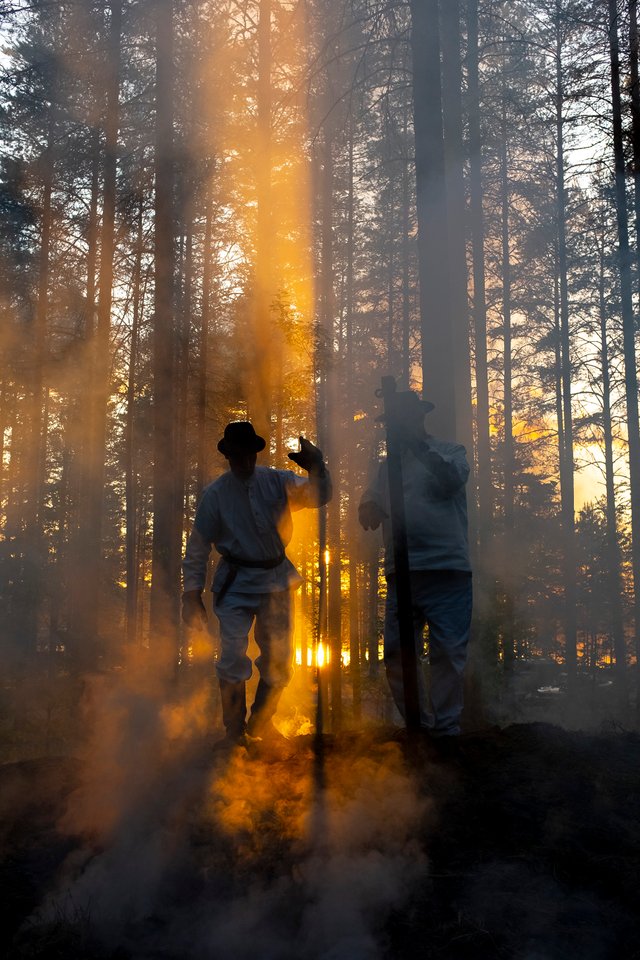
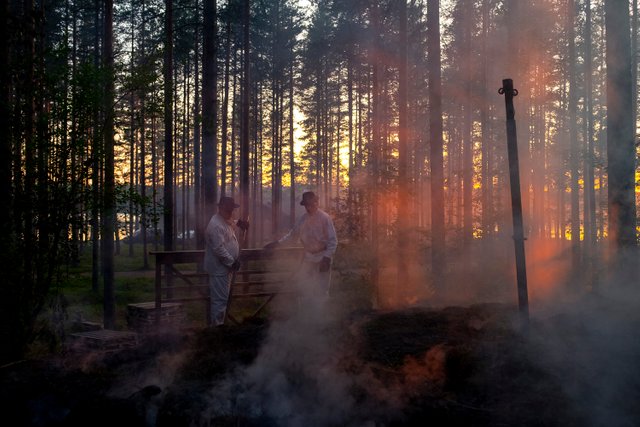
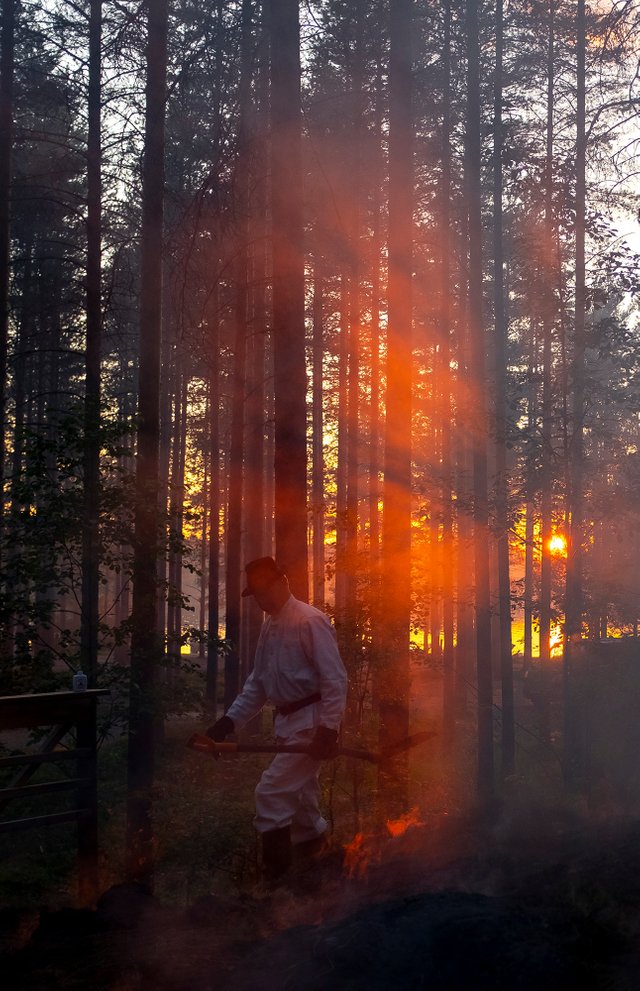
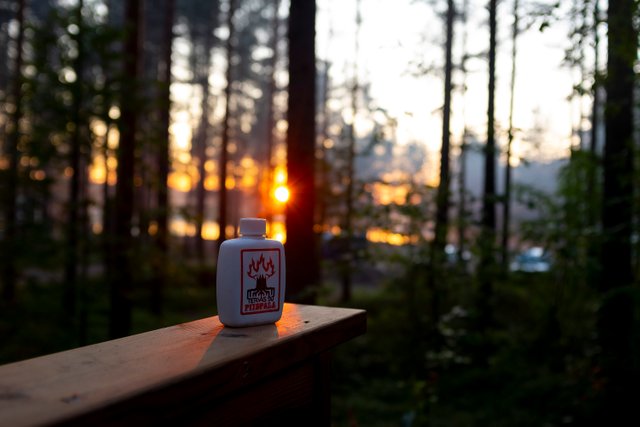
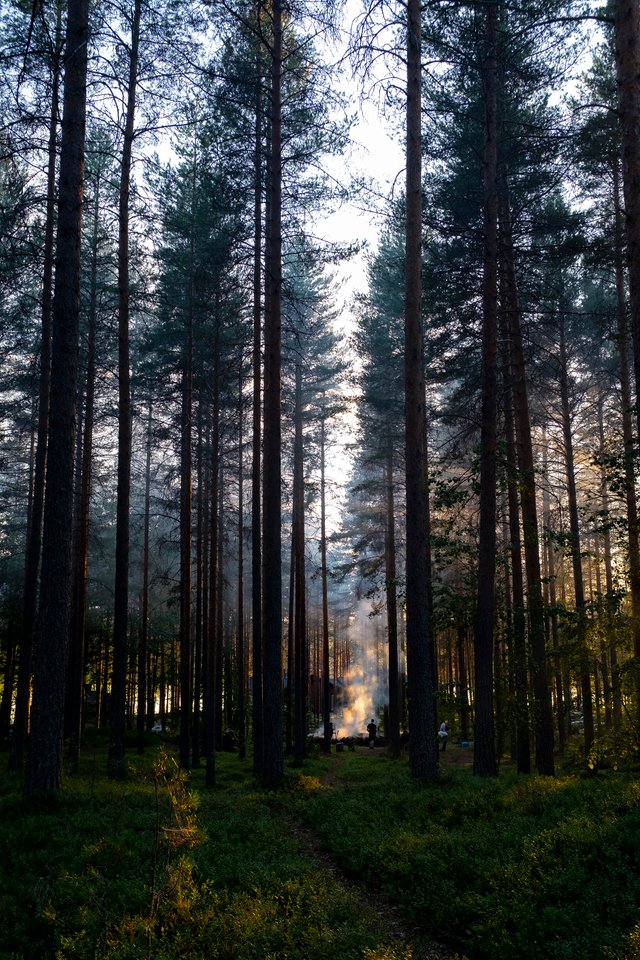
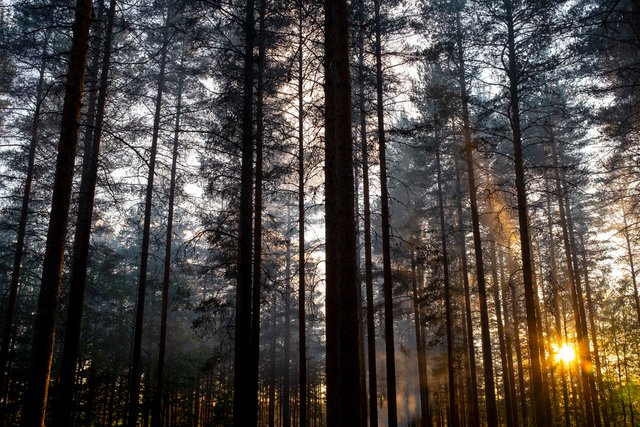
Mmm... these pictures are really nice, Eve! The fourth last one with the blazing red sun beams is my favorite.
Downvoting a post can decrease pending rewards and make it less visible. Common reasons:
Submit
Thanks! I was beyond excited to shoot these, as you can imagine!
Downvoting a post can decrease pending rewards and make it less visible. Common reasons:
Submit
Thanks! I was beyond
Excited to shoot these, as
You can imagine!
- eveuncovered
I'm a bot. I detect haiku.
Downvoting a post can decrease pending rewards and make it less visible. Common reasons:
Submit
Great photos and solid info!
$rewarding 100% 10 min
Posted using Partiko iOS
Downvoting a post can decrease pending rewards and make it less visible. Common reasons:
Submit
Thank you! It is important for me to share bits like this because many crafts and traditions are dying and will be completely lost if not passed on to the next generations.
Downvoting a post can decrease pending rewards and make it less visible. Common reasons:
Submit
Absolutely! I think we’re the only people in the world who use wood tar as a flavor.
$rewarding 35% 15 min
Posted using Partiko iOS
Downvoting a post can decrease pending rewards and make it less visible. Common reasons:
Submit
I wouldn’t be surprised if we are 😅
Downvoting a post can decrease pending rewards and make it less visible. Common reasons:
Submit
Very cool.
I'm pretty sure there's still some tar pits about 3-4 hours North of me (Northern Canada) but I've never had the experience of watching the process.
The photos are surreal.
Downvoting a post can decrease pending rewards and make it less visible. Common reasons:
Submit
I always feel like Finland and Canada have so much in common, really wanna visit some day.
Downvoting a post can decrease pending rewards and make it less visible. Common reasons:
Submit
I've been to Norway, but not Finland yet. Norway (in and around Oslo) is very much like Northern Canada, but the weather there seemed warmer than ours due to the Gulf Stream. Their winter lows were around -5°C, our lows were around -30°C
Downvoting a post can decrease pending rewards and make it less visible. Common reasons:
Submit
Looks great Eve!
Downvoting a post can decrease pending rewards and make it less visible. Common reasons:
Submit
Thank you friend!
Downvoting a post can decrease pending rewards and make it less visible. Common reasons:
Submit
Beautiful!!!
Downvoting a post can decrease pending rewards and make it less visible. Common reasons:
Submit
Great shots!
Thanks for sharing and greetings from Mexico.
Posted using Partiko Android
Downvoting a post can decrease pending rewards and make it less visible. Common reasons:
Submit
Beautiful photos are so full of light.
I didn't realize how tar was made so thank you for a bunch of useful information.
Posted using Partiko iOS
Downvoting a post can decrease pending rewards and make it less visible. Common reasons:
Submit
Gorgeous shots!
Downvoting a post can decrease pending rewards and make it less visible. Common reasons:
Submit
Thank you very much Ross :)
Downvoting a post can decrease pending rewards and make it less visible. Common reasons:
Submit
You're welcome!
Downvoting a post can decrease pending rewards and make it less visible. Common reasons:
Submit
Je n'étais pas si loin en proposant une fosse à charbon.
C'est important de conserver ce savoir-faire ancestral.
C'est une forme de culture populaire qui nous rappelle comment vivaient les anciens.
Merci de nius avoir fait partagé ce moment !
Downvoting a post can decrease pending rewards and make it less visible. Common reasons:
Submit